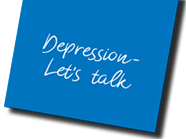Healthy Sleeping Habits
There is a well-researched relationship between sleep and depression. In fact, there is evidence that depression is the most common psychiatric cause of insomnia.
Symptoms related to sleep in depression are:
- Difficulty falling asleep (initial insomnia)
- Difficulty going back to sleep once woken up (intermediate insomnia)
- Waking up very early in the morning (terminal insomnia)
About 90% of depressed patients have sleep problems, one third of healthy adults have symptoms of insomnia, and 10% of adults report chronic sleep problems that interfere with their daily routine.
Many patients with low quality of sleep try to compensate by staying in bed longer trying to fall asleep. It’s not unusual for people who sleep about 5 hours per night to stay in bed between 9 to 10 hours, which may contribute to the maintenance of sleep problems. In such cases, it may be helpful to try to reduce their time in bed.
Tips for healthy sleeping habits
Morning:
- Get up as soon as you wake up and don’t go back to bed
- Try to get up every day at the same time
- Go out and get some fresh air in the mornings- you could take a short walk to the shop for the newspapers or groceries
Afternoon:
- Avoid naps. If you nap, you might feel less tired but you will need more time to fall asleep that night. Many depressed people may feel even more tired after a nap
- Try to be physically active during the day
- Avoid caffeine after 4 p.m. and don’t drink more than two drinks with caffeine during the day (coffee, tea, coke and energy drinks)
Before going to sleep:
- Avoid going to bed too early
- Avoid alcohol before bedtime: alcohol may cause less deep sleep and frequent waking during the night
- Don’t smoke in the half-hour before going to sleep: nicotine is a stimulant
- Don’t go to bed hungry or after a large meal
- Regular physical exercise can improve sleep but very demanding physical exercise should be avoided before going to sleep
- Allow yourself to have a relaxing period of time before going to sleep: If you are working or studying you should stop 30 minutes before going to sleep and do something relaxing during that time
- Use the bed only for sleeping and sexual activity, and not for watching TV or surfing the internet
- If, after some time in bed, you don’t feel like falling asleep, get up and go to another room and do a relaxing activity (like listening to calm music) and then return to the bedroom



